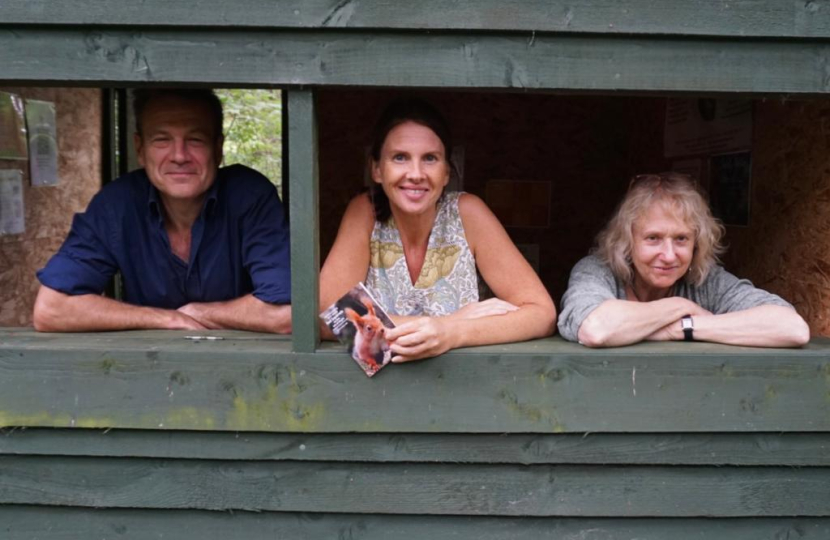
MP Bob Seely is supporting Island charity – Wight Squirrel Project – with a campaign to prevent red squirrels from falling victim to poison.
According to figures recorded by the Wight Squirrel Project up to 2022, around 1.7 per cent of red squirrels presented for post-mortem examination died because they ingested amateur rodenticides such as rat poison.
The charity has written to Mr Seely about the problem who says he is considering using legislation to address the issue.
He said: “First, thank you to Helen Butler MBE and other volunteers from the Wight Squirrel Project who do so much to support the red squirrel population on the Isle of Wight.
“Red squirrels are protected in UK law; however, I think there could be more we can do so I’ve written to Environment Minister, Rebecca Pow, about the specific issue of poison and what can be done about it.
“I believe changes in legislation could help so I am considering bringing forward a Red Squirrels Protection Bill to address the issues affecting the health of red squirrels not just on the Isle of Wight but across the UK.”
Red squirrels are protected under the Wildlife and Countryside Act 1981 which makes it illegal to intentionally or recklessly injure kill or take red squirrels. Housing rodenticides, such as rat poison, in a bait box/station is also required by law.
In his letter to the Minister, Mr Seely said: “I am concerned that current legislation is failing to deter the harm caused to red squirrels by the misuse of amateur rodenticides on the Isle of Wight.
“In 2022, there were 4,457 reported wildlife crimes but only 526 convictions. Few convictions related to improper use of pesticides. Fines for improper use of pesticides are relatively low and therefore reportedly fail to act as a deterrent. One recent egregious case of illegal pesticide storage resulted in a fine and costs of just £219.”
He specifically asked the Minister: “Please could you outline how your department currently plans to prevent the misuse of amateur rodenticides in areas with populations of red squirrels or other protected species?”
Helen Butler MBE from the Wight Squirrel Project said: “We thank Bob Seely MP for pursuing this issue. If we are serious about looking after the Isle of Wight’s nationally important population of red squirrels, we must do all we can to protect them and enforce the Wildlife & Countryside Act 1981 when necessary.”
The Wight Squirrel Project has recommended a number of potential measures to address the problem including restricting the use of amateur rodenticides in areas with protected species, and enforcing the careful and responsible use of bait boxes.




